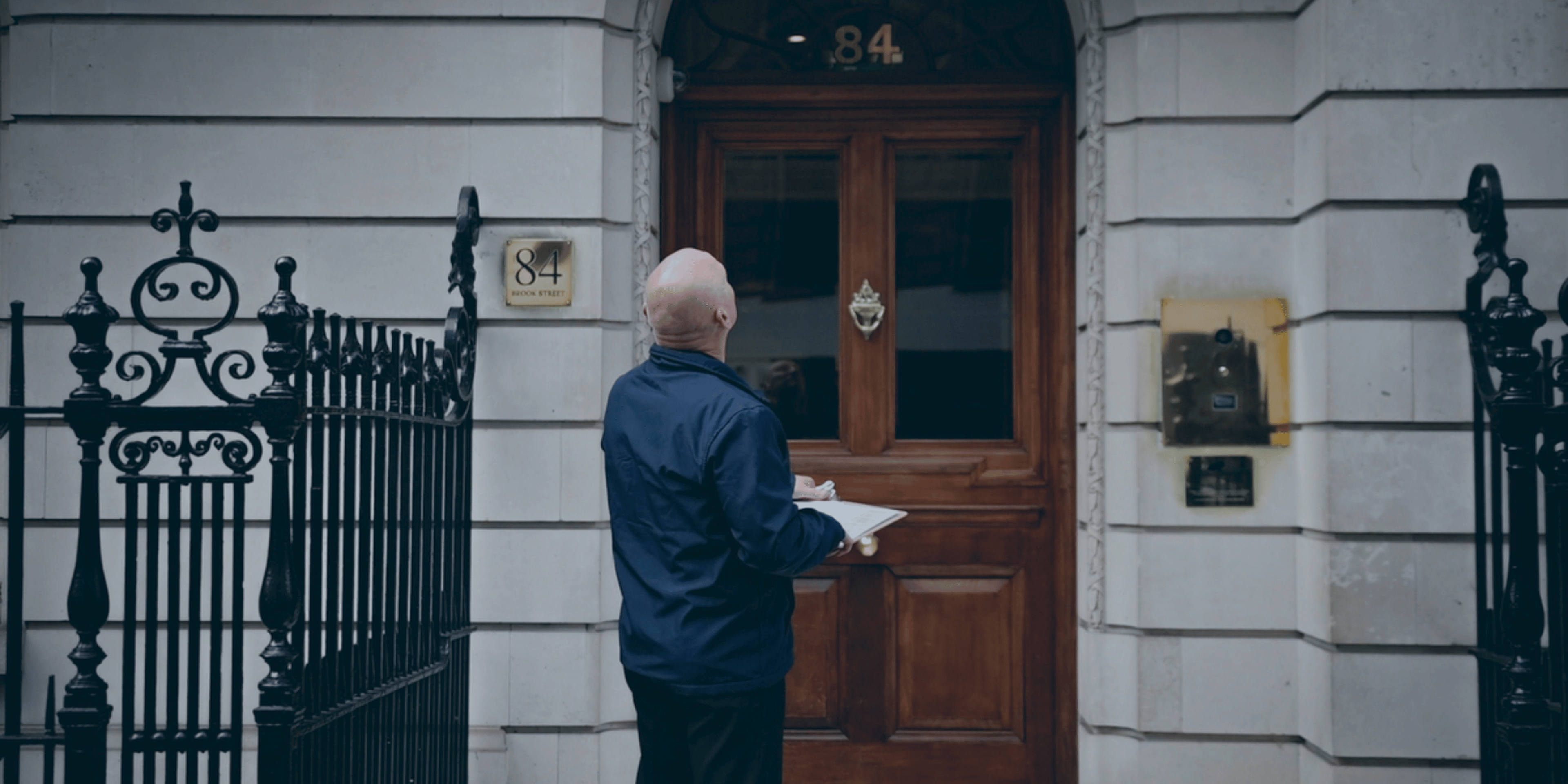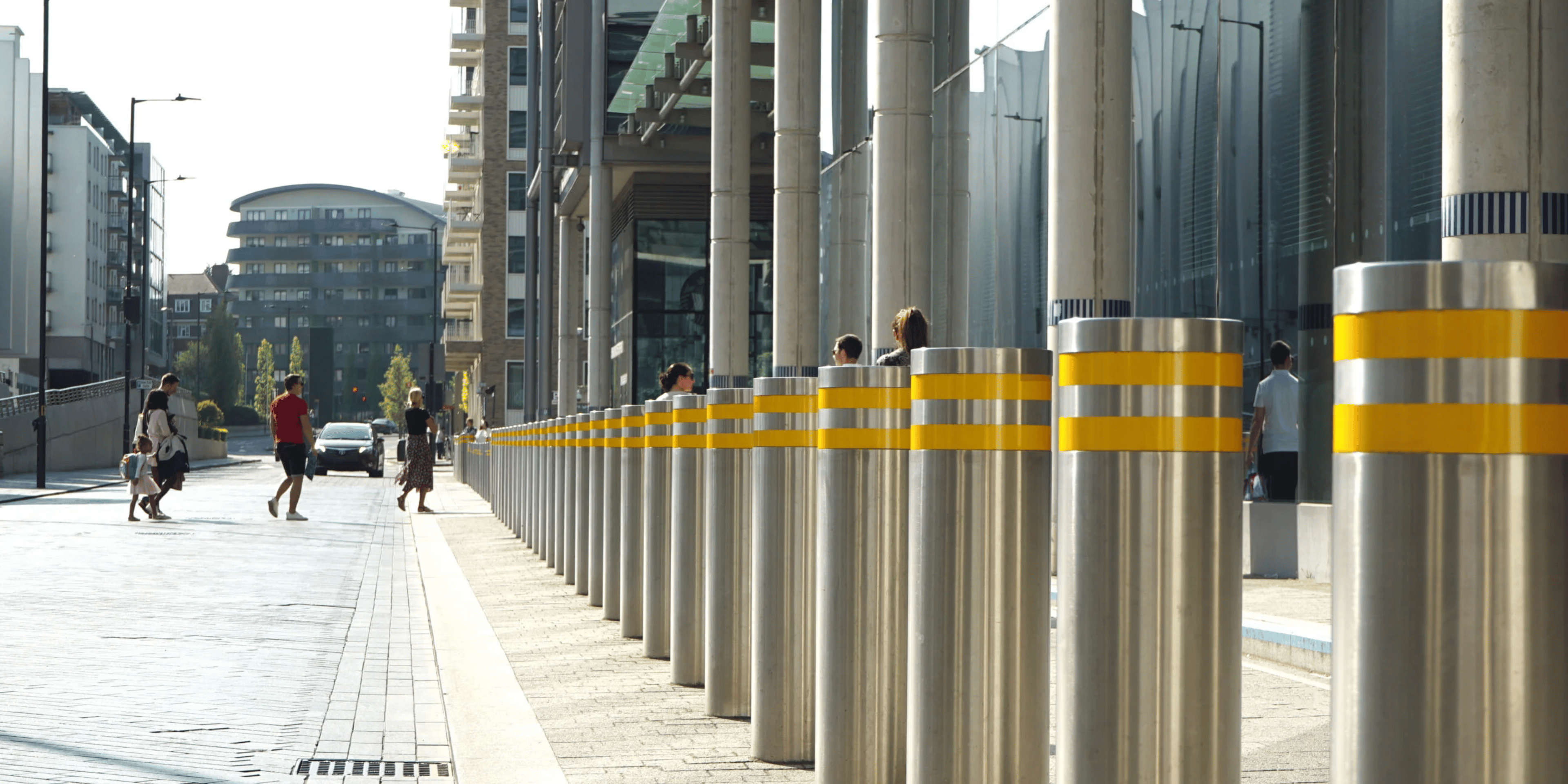
Compare Leading CCTV Companies in the UK for Construction Security
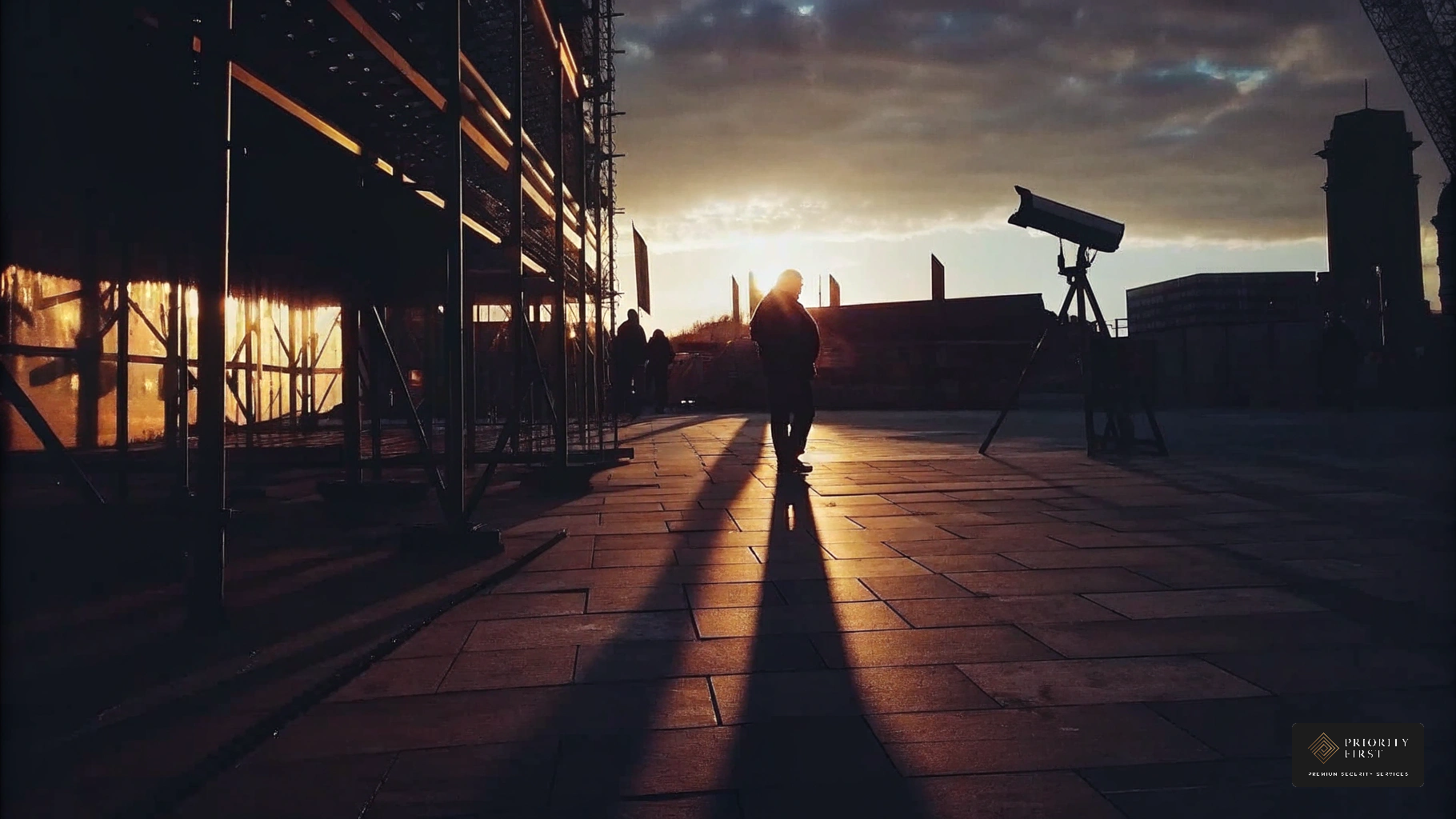
Overview
The article examines the critical role of selecting the appropriate CCTV provider for construction security in the UK, underscoring the significance of their services, technologies, and pricing models.
Choosing the right CCTV provider is not merely a matter of preference; it is essential for enhancing security and operational efficiency at construction sites. This is evident from the advanced technologies and tailored services these companies provide, which are designed to meet the specific needs of various projects.
Ignoring this aspect can lead to significant financial, operational, and reputational risks for businesses. Therefore, understanding the implications of security choices is paramount.
In practise, the right CCTV solutions can serve as a cornerstone for robust construction project management, ensuring that investments in security translate into tangible benefits and resilience against potential threats.
Introduction
The construction industry in the UK is grappling with significant challenges, including theft, vandalism, and compliance with safety regulations. These issues underscore the necessity for effective surveillance systems, which are now more critical than ever. The reality is that CCTV companies provide advanced solutions designed not only to deter crime but also to improve operational efficiency and safety on construction sites.
However, with numerous options available, project managers face the pressing question: how do they select the right provider and technology that align with their specific security needs?
This article explores the leading CCTV companies in the UK, comparing their services, pricing models, and technological innovations to empower businesses to make informed decisions and safeguard their projects.
Understanding CCTV: Definition and Importance in Security
CCTV companies in UK provide Closed-Circuit Television (CCTV) systems that are essential for construction site security, offering a robust solution for monitoring activities, deterring unlawful actions, and ensuring compliance with safety regulations. Surveillance cameras have been shown to significantly reduce incidents of theft and vandalism, creating a safer environment for employees and safeguarding valuable equipment and materials. For instance, a client of G&A Security reported zero break-ins after implementing a video surveillance system at a housing development, resulting in substantial savings from potential losses.
Modern surveillance technology enhances security protocols with features such as remote monitoring, motion detection, and high-definition video quality. These advancements facilitate real-time analysis of footage, enabling the identification of suspicious behaviour and improving response times. By 2025, the significance of surveillance cameras at construction sites is underscored by insurance companies offering lower premiums for properties equipped with these systems, demonstrating their effectiveness in mitigating risks associated with theft, vandalism, and liability claims.
Furthermore, the integration of AI-driven surveillance systems allows for real-time footage analysis, including facial recognition and vehicle tracking, thereby reducing reliance on human oversight. This technological progression not only bolsters security but also enhances overall safety compliance in construction environments, ensuring adherence to safety protocols by workers. As the construction industry evolves, the adoption of surveillance systems from CCTV companies in UK is increasingly recognised as a critical investment for maintaining safe and efficient operations.
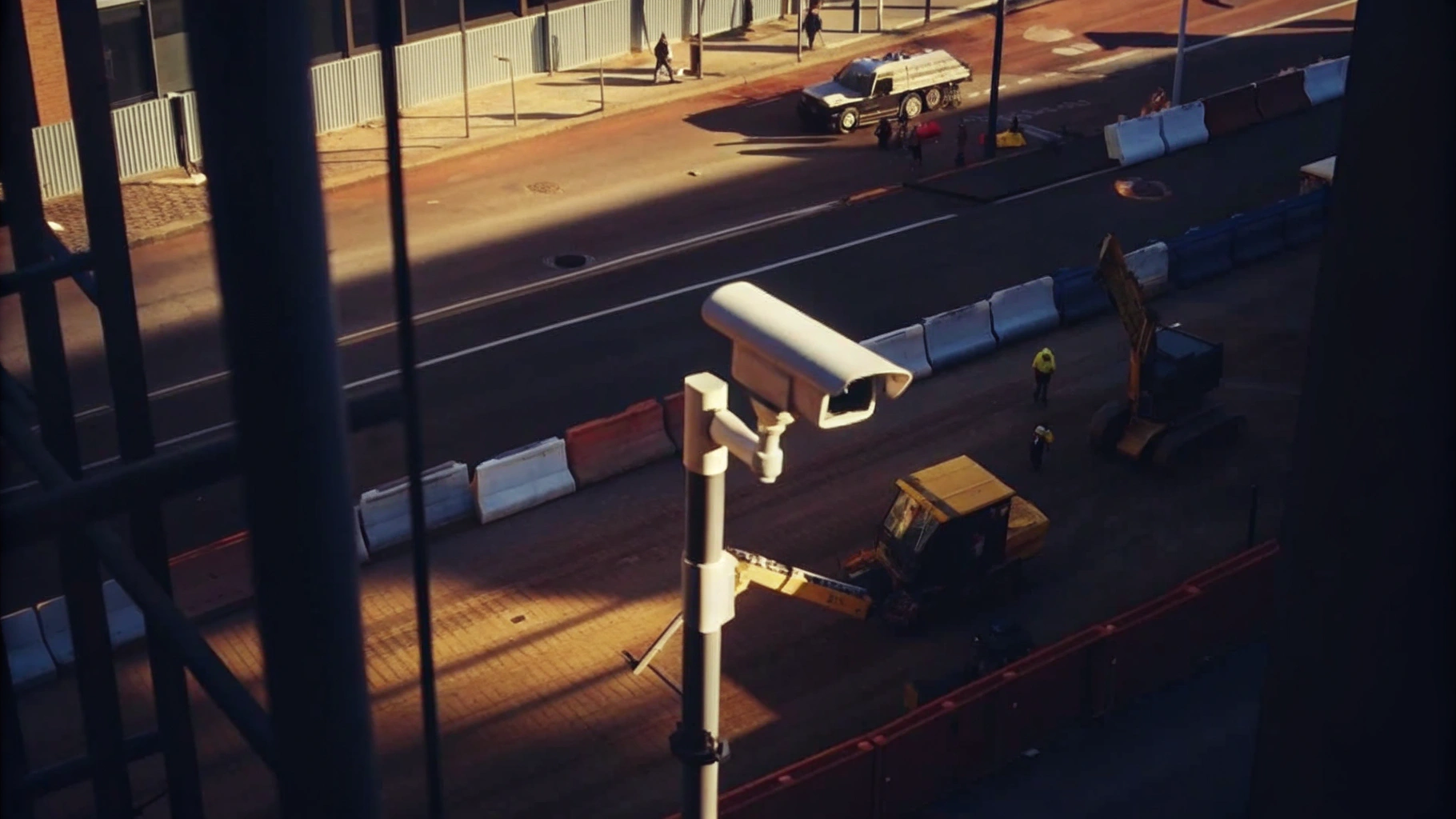
Exploring Different Types of CCTV Technologies and Their Applications
CCTV companies in the UK offer technologies that encompass a range of camera types, each tailored to meet specific security needs within building environments. Understanding these options is crucial for enhancing safety and operational efficiency.
- Dome Cameras: These discreet devices are particularly suited for indoor settings, offering a broad coverage area that is effective for monitoring construction site offices and communal spaces.
- Bullet Cameras: Known for their distinctive elongated shape, bullet cameras are primarily used outdoors. Their visibility serves as a deterrent to criminal activity, making them ideal for perimeter surveillance.
- PTZ Cameras (Pan-Tilt-Zoom): These versatile cameras can be remotely controlled to pan, tilt, and zoom, allowing for comprehensive monitoring of expansive building areas. Their capability to cover large spaces is especially beneficial in dynamic environments.
- IP Cameras: Distinguished by their high-definition video capabilities, IP cameras connect to the internet, facilitating remote monitoring and integration with other surveillance systems. This connectivity significantly enhances situational awareness and response times.
- Thermal Cameras: Designed for low-light conditions, thermal cameras detect heat patterns, making them ideal for nighttime surveillance at building sites. Their effectiveness in darkness ensures continuous monitoring, even in challenging visibility scenarios.
Each camera type presents unique advantages and limitations, and the selection must align with the specific requirements of the building project. As the industry increasingly adopts advanced surveillance technologies, it is essential to grasp the alternatives provided by CCTV companies in the UK for bolstering site security and operational resilience.
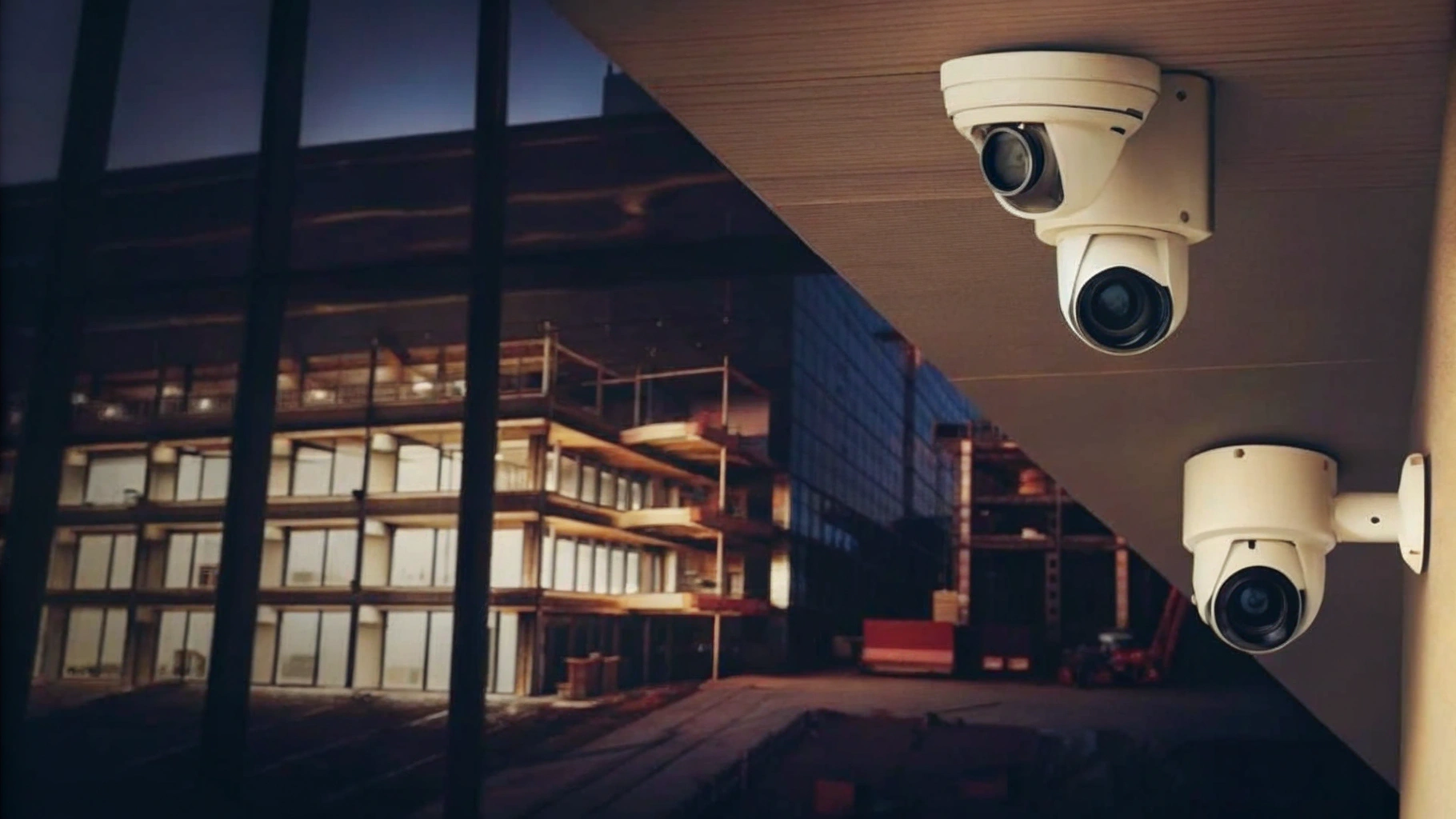
Comparing Services Offered by Leading CCTV Companies in the UK
When assessing CCTV companies in the UK, it is essential to consider several key services that directly impact security and operational resilience for construction sites.
-
Installation Services: Companies such as Priority First Security Services provide customised installation that takes into account the specific layout and security requirements of construction sites. This approach ensures optimal camera placement, maximising coverage and effectiveness.
-
Monitoring Services: Priority First offers 24/7 surveillance monitoring, which is vital for addressing any suspicious activity promptly. This measure is particularly crucial for construction sites that may be vulnerable during off-hours, as it helps deter crime and safeguard both staff and materials.
-
Maintenance and Support: Regular maintenance is critical to ensuring surveillance systems operate at peak efficiency. Leading firms, including Priority First, offer comprehensive support and maintenance packages designed to keep these systems functioning smoothly over time.
-
Integration with Other Security Systems: Many companies now provide integrated solutions that combine CCTV with access control and alarm systems. Priority First specialises in seamlessly merging their services with existing systems, enhancing overall security without disrupting ongoing operations.
-
Custom Solutions: The ability to tailor services to meet specific project demands is a significant advantage offered by leading firms like Priority First. This capability ensures that all safety needs are effectively addressed and adapted to the unique requirements of each construction site.
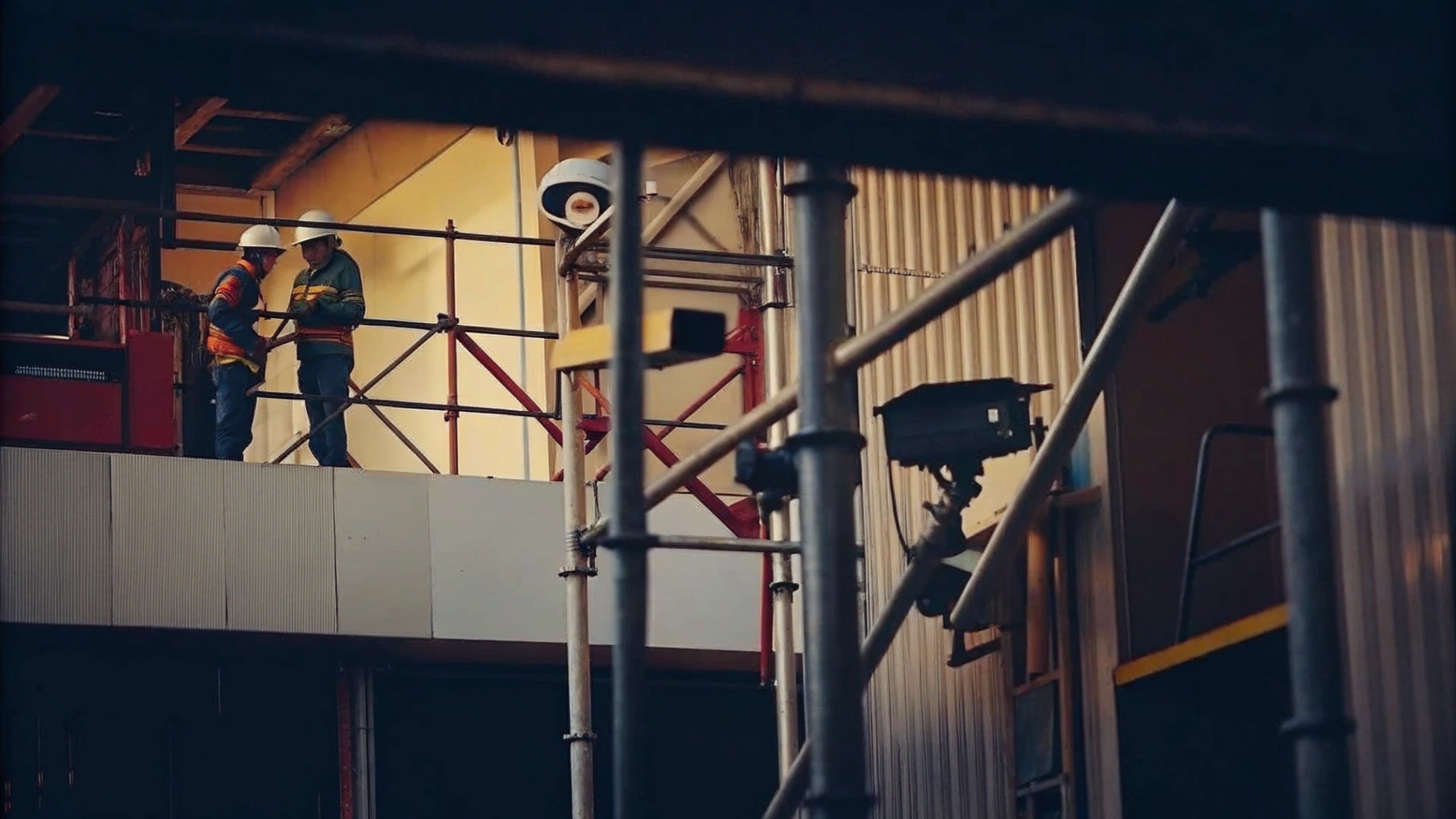
Analyzing Pricing Models of CCTV Services Across Different Providers
Pricing for CCTV services offered by CCTV companies in the UK in the building sector varies significantly based on technology, installation scope, and monitoring options. Understanding these pricing models is essential for effective budgeting and optimising investment in security provided by CCTV companies in the UK. Key models include:
- Flat Rate Pricing: This straightforward approach offers a fixed cost for installation and monitoring, simplifying financial planning for clients. It allows for predictable budgeting, which is particularly beneficial for long-term projects.
- Tiered Pricing: This model presents various service levels at different price points, enabling clients to select a package that aligns with their specific needs and budget constraints. This flexibility enhances value by allowing businesses to scale services as required.
- Pay-As-You-Go: Ideal for short-term building projects, this flexible pricing structure permits clients to pay only for the services they utilise. This is advantageous for projects with varying protection needs, ensuring clients do not overpay for unnecessary services.
- Subscription Models: Monthly or annual subscriptions for monitoring services are prevalent, providing ongoing support and maintenance for a consistent fee. This model guarantees that clients have access to professional monitoring without the burden of unexpected costs.
When evaluating these pricing models, clients should consider not only the initial costs but also the long-term value and reliability of the services provided by CCTV companies in the UK. For instance, investing in a monitored CCTV system from Priority First can reduce surveillance expenses by up to 80% compared to hiring physical guards, making it a cost-effective option for construction sites. Furthermore, Priority First focuses on integrating its services with existing protection systems, ensuring minimal disruption while enhancing overall safety. The real-time monitoring feature of Priority First's services further ensures that any suspicious activity is swiftly addressed, adding an extra layer of protection. Understanding the implications of each model can assist project managers in making informed decisions that enhance site safety while effectively managing budgets.
Evaluating Technological Innovations in CCTV Systems
Recent technological advancements in surveillance systems from CCTV companies in the UK have markedly enhanced protective measures, particularly within construction environments. A key fact to note is that 26% (409,000) of all business premises in England and Wales fell victim to crime in the last year. This statistic underscores the pressing need for improved security protocols.
CCTV companies in the UK are now utilising modern CCTV systems that leverage artificial intelligence for real-time video feed analysis, facilitating the detection of suspicious behaviour and immediate alerts to security personnel. This proactive approach not only enhances response times but also significantly boosts overall site safety. The implication is clear: businesses must adopt these technologies to mitigate risks effectively.
Moreover, the shift to cloud-based storage solutions allows for convenient access to recorded footage from any location. This flexibility empowers construction managers to review footage and respond to incidents promptly, irrespective of their physical presence on-site. Ignoring such advancements could lead to delayed responses and potential losses.
Integrating CCTV systems with other Internet of Things (IoT) devices creates a more cohesive safety framework that is often offered by CCTV companies in the UK. This integration enables coordinated reactions to incidents, improving the overall efficiency of protective measures. In practice, this means that construction sites can operate with a higher level of security and operational efficiency.
The latest high-definition and 4K cameras offer superior image quality, essential for accurately identifying individuals and incidents. This clarity is crucial for legal documentation and insurance claims, ensuring that construction locations are well-protected. Additionally, thermal cameras enhance security in dim or smoky settings, providing an extra layer of protection.
Remote access and control capabilities through mobile applications allow users to oversee their locations from afar. This not only provides peace of mind but also ensures prompt access to monitoring feeds, facilitating swift decision-making in response to potential threats. The lesson is clear: embracing these technologies is not merely an option but a necessity for modern construction management.
Integrating Hostile Vehicle Mitigation (HVM) strategies with these technological advancements is vital for comprehensive location protection. HVM involves physical measures to prevent vehicles from being weaponised, particularly relevant in busy building sites. By combining human surveillance with sophisticated video monitoring systems, project managers can establish a multi-tiered security strategy that effectively addresses various threats.
In conclusion, these innovations collectively enhance the effectiveness of CCTV systems offered by CCTV companies in the UK, ensuring that construction sites are secure against evolving threats while improving operational efficiency. Early investment in these technologies is essential to prevent greater losses later.

Conclusion
In the current landscape of construction security, CCTV systems are not merely beneficial; they are essential. With construction theft costing UK businesses over £1m a week, the need for robust surveillance measures is clear. Companies must recognise that advanced CCTV technology serves as a fundamental safeguard against theft, vandalism, and regulatory non-compliance.
The implications of overlooking these security measures can be significant. Financial losses from theft can disrupt operations and damage reputations, while non-compliance with safety regulations can lead to costly penalties. Therefore, businesses must prioritise security as a critical component of their operational strategy.
Investing in modern CCTV solutions is not just a wise choice; it is a necessity for construction companies striving to enhance their resilience and operational efficiency. Priority First offers a pragmatic approach, leveraging advanced surveillance technologies such as AI-driven analysis and cloud-based storage to create safer environments for workers and protect valuable assets.
As the construction industry evolves, so too do the threats it faces. Embracing cutting-edge technology is crucial for maintaining safety and compliance on-site. Stakeholders are urged to evaluate their security needs and consider the long-term advantages of partnering with leading CCTV providers. By prioritising comprehensive surveillance solutions today, businesses can effectively safeguard their operations and significantly reduce the likelihood of costly incidents in the future.
Frequently Asked Questions
What is CCTV and why is it important for construction site security?
CCTV stands for Closed-Circuit Television, and it is essential for construction site security as it helps monitor activities, deter unlawful actions, and ensure compliance with safety regulations. It significantly reduces incidents of theft and vandalism, creating a safer environment for employees and protecting valuable equipment and materials.
How effective are CCTV systems in preventing theft and vandalism?
CCTV systems have been shown to significantly reduce incidents of theft and vandalism. For example, a client of G&A Security reported zero break-ins after implementing a video surveillance system at a housing development, leading to substantial savings from potential losses.
What modern features do CCTV systems offer?
Modern CCTV systems offer features such as remote monitoring, motion detection, and high-definition video quality. These advancements allow for real-time analysis of footage, enabling the identification of suspicious behaviour and improving response times.
How do insurance companies view CCTV systems at construction sites?
By 2025, insurance companies are expected to offer lower premiums for properties equipped with surveillance cameras, highlighting their effectiveness in mitigating risks associated with theft, vandalism, and liability claims.
What role does AI play in modern surveillance systems?
AI-driven surveillance systems allow for real-time footage analysis, including facial recognition and vehicle tracking, which reduces reliance on human oversight. This technology enhances security and improves safety compliance in construction environments.
What types of CCTV cameras are available and what are their applications?
There are several types of CCTV cameras: - Dome Cameras: Ideal for indoor settings, offering broad coverage for monitoring offices and communal spaces. - Bullet Cameras: Used outdoors, their visibility serves as a deterrent for crime and is suitable for perimeter surveillance. - PTZ Cameras: These can be remotely controlled to pan, tilt, and zoom, covering expansive areas effectively. - IP Cameras: Known for high-definition video, they connect to the internet for remote monitoring and integration with other systems. - Thermal Cameras: Effective in low-light conditions, they detect heat patterns for nighttime surveillance.
How should one choose the right CCTV camera for a building project?
The selection of CCTV cameras should align with the specific requirements of the building project, considering the unique advantages and limitations of each camera type to enhance site security and operational resilience.


